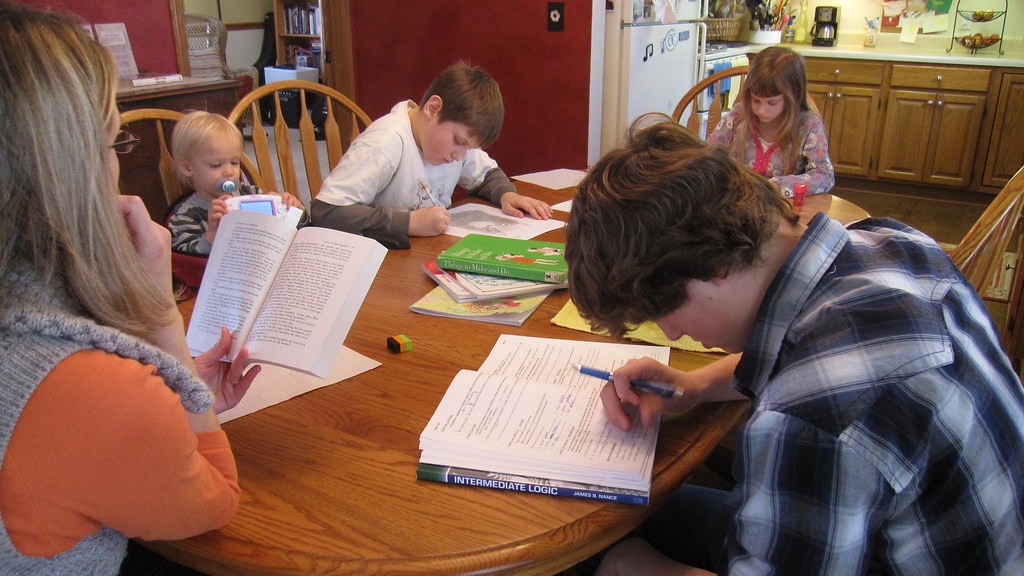Some Public Schools Making The Transition To Homeschooling Difficult
State public education practices are oftentimes found to be intrusive and overstepping, making the transition to homeschooling difficult.

State laws regarding homeschooling requirements vary. Each area has its own rules, and families who choose not to enroll in public or private schools may have more obstacles than others. As more families flee the public education system, homeschooling organizations are warning parents of unlawful practices that some public schools are trying to force onto those seeking to educate children at home.
Many states lay out simple minimum requirements for at-home learning. From specified core class focus, to minimum hours for instruction, these are generally reasonable criteria. Unfortunately some states have been caught collecting data on homeschooling families. The Home School Legal Defense Association (HSLDA) recently found that the West Virginia State Board of Education (SBE) has required county boards of education to track homeschooling families in a West Virginia Education Information System (WVEIS) database.
This is a direct invasion of privacy and it is not exclusive to West Virginia. New York has gone so far as to demand that homeschooling families provide their children’s birth certificates and other sensitive information to be entered into a state-controlled database. In North Carolina, some districts have even sent school representatives door to door to collect information from homeschoolers.
Many parents who are new to homeschooling may be fooled into thinking that these offenses are normal protocols, but they are not. Children who are not enrolled in the public education system are not the public education system’s concern, wards, or responsibility and parents have no legal obligation to provide these powerful government entities with any information regarding their children’s personal information. The HSLDA investigated the situation in West Virginia after being contacted by multiple parents and found that the information being sought is not legally required in any capacity.
Public school boards are not education law officers. State education departments may investigate families if child protective services are contacted regarding serious concerns, but school boards are a different entity. They hold no legal jurisdiction — although they may influence legal protocols and lobby for school policies based on their political affiliations. While some states have more strict homeschooling laws than others, home educators are being preyed upon by school districts that are obsessed with data collection and tracking students.
Schools that use homeschooled students’ information in their tracking databases may use their successes to bolster performance rates and forge enrollment numbers. In addition, this abuse of power leaves families vulnerable to cyber crime, as public school databases have been targets for data hackers throughout the pandemic. Collecting sensitive information in the modern age is common, but so is identity theft, stalking, and other predatory behaviors.

Schools that pressure homeschooling families to hand over personal data are overstepping their boundaries and disrupting the learning process. They often have no legal grounds for doing so and yet abuse their power and the fact that parents do not always know their rights. Any family who is unsure of their state homeschooling laws, home education rights, or believe that their privacy has been violated can learn more at hslda.org.



